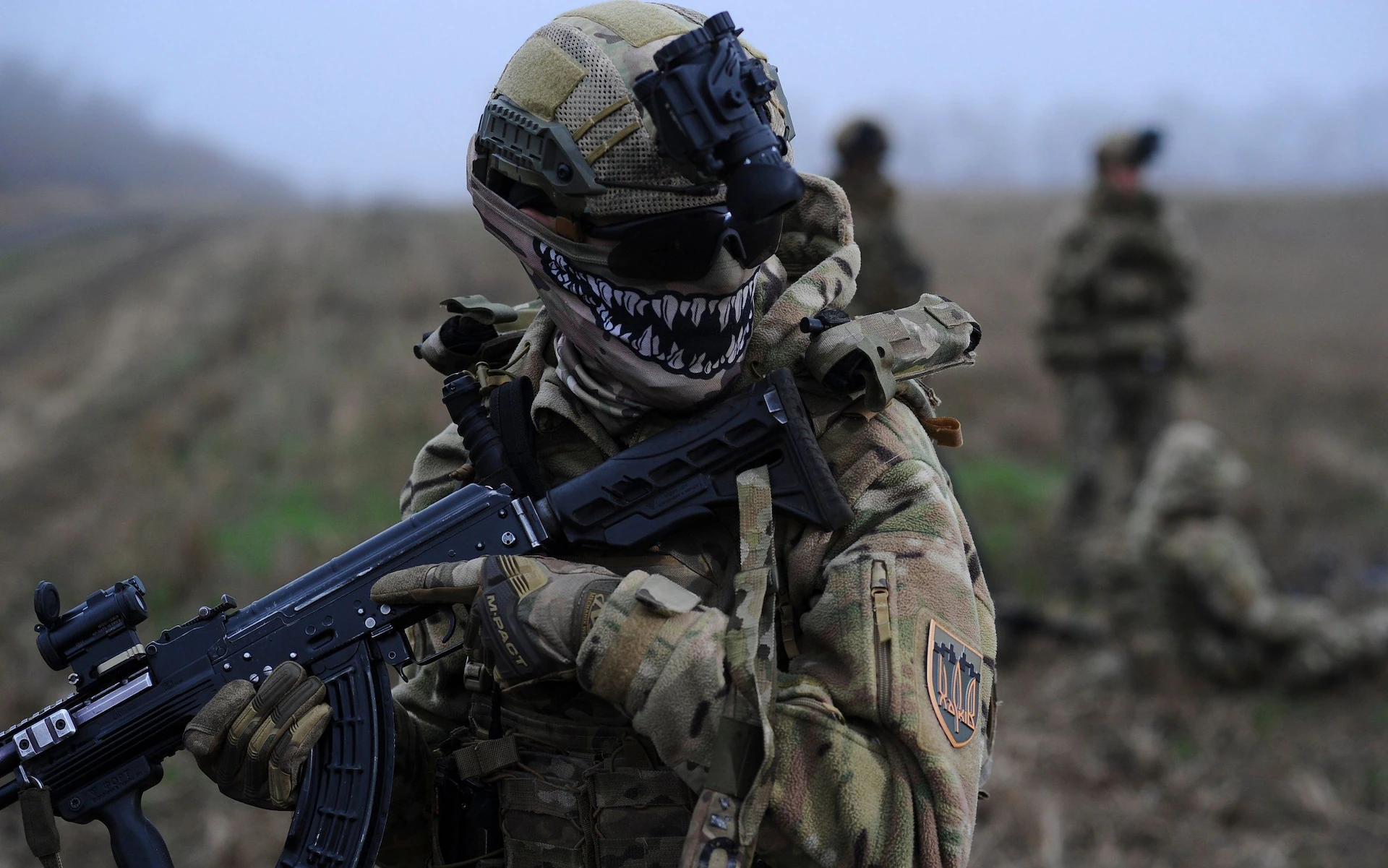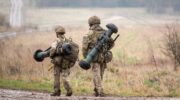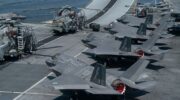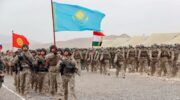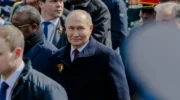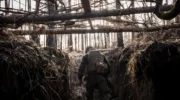Russia would keep control of Donbas region in exchange for rental fee under US plan.
Ukraine could be forced to lease part of its territory to Russia under a US plan to end the war.
The Trump administration deal would see Kyiv cede control of the eastern Donbas region, but maintain legal ownership. Russia would pay an undisclosed rental fee for de facto control of the region, officials familiar with the deal told The Telegraph.
The 28-point plan was thrashed out between the US and Russia in a recent flurry of secretive talks, renewing fears that Ukraine is being frozen out of discussions about its future.
As well as forcing Ukraine to surrender territory, the deal would slash the size of Kyiv’s military in half and ban it from possessing long-range missiles.
It would also block deployments of foreign troops in Ukraine, end US military assistance and prevent foreign diplomatic aircraft from landing in the country. Russian would be made an official state language, and the Russian Orthodox Church would be given official status in the occupied territories.
Ukraine would be permitted to negotiate security guarantees from the US and European governments to help maintain any ceasefire.

Officials in the Ukrainian capital dismissed the plan, and Russia denied knowledge of it. Donald Trump did not comment on the deal, but revealed on Wednesday that he had recently told Vladimir Putin: “Let me settle your freaking war”.
However, sources said the White House had told Volodymyr Zelensky he must agree to the terms, sensing weakness because of a corruption scandal engulfing the Ukrainian president.
Mr Zelensky has repeatedly ruled out surrendering the entire Donbas to Russia as the price for peace. Ceding territory has been a long-held demand of Putin since he met Mr Trump in Alaska in August for peace talks.
After pressure from Kyiv and other Western capitals, the US president had rejected the move, arguing any ceasefire should be negotiated based on the current front lines.

The Trump plan for a land lease scheme by Ukraine fits a pattern of business deals used to prop up peace agreements.
The Donbas is rich in minerals. In exchange for the territory, Moscow could be expected to pay a ground fee to compensate for the financial losses incurred by Ukraine’s losing access to its lands.
Ukraine is obliged under its constitution to put ceding of territory to a public vote that would be likely to fail – something a lease deal would avoid.
Shortly after the deal emerged, Lt Gen Keith Kellogg, Mr Trump’s special envoy to Ukraine, announced his resignation. A close associate said he believed fellow Trump administration officials were being strung along by Russia.
It was drawn up during three days of talks between Steve Witkoff, Mr Trump’s peace envoy, and Kirill Dmitriev, a Russian envoy, in Miami last month, reports suggest.

Mr Dmitriev told Axios he was optimistic about the deal because “we feel the Russian position is really being heard”.
He said the US would explain the “benefits” of the peace agreement to Ukraine and its European allies, adding that negotiations were taking place at a time when Moscow was making progress on the ground.
“It’s happening with the background of Russia definitely having additional successes on the battlefield,” he said, suggesting that Moscow’s leverage was growing.
The strategy was shared with Kyiv this week, with Rustem Umerov, the head of Ukraine’s National Security and Defence Council, flown to Miami for talks.

The talks came days after a summit between Mr Trump and Putin in Hungary was cancelled and the US appeared to be taking a hard line on Russia by imposing oil sanctions.
European sources told The Telegraph that they had largely been kept in the dark about the details of the deal. Mr Witkoff is often criticised privately by European officials, who believe he is too easily swayed by Russian arguments.
Mr Trump has been frustrated by the Ukraine war, having promised to end the conflict on day one of his presidency.
Mr Witkoff had been expected to speak to Mr Zelensky in Turkey on Wednesday, but the meeting was postponed. The Ukrainian president is reported to have been displeased by the proposal after it was briefed to his officials.
A US official told Axios that the meeting had been postponed because Mr Zelensky intended to bring an alternative plan, drafted with European partners, which the US felt would be unacceptable to Russia and would reverse course on the understandings reached with Mr Umerov.
Qatar and Turkey are understood to be involved in drafting the new peace plan and are supporting US mediation efforts.
On Wednesday, Dan Driscoll, the US army secretary, and a top-level Pentagon delegation arrived in Kyiv “on a fact-finding mission to meet with Ukrainian officials and discuss efforts to end the war,” spokesman Col Dave Butler said.
Denys Shmyhal, Ukraine’s defence minister, said the talks had focused on sharing drone technologies and air defence support being offered by Washington.

Just hours before the US plan emerged, at least 26 people were killed, including three children, after a Russian attack on the western Ukrainian city of Ternopil.
Nearly 100 more were wounded and more than 20 listed after drones and missiles hit residential buildings in one of Russia’s deadliest attacks on western Ukraine.
The neighbouring Lviv and Ivano-Frankivsk regions were also struck, and a drone attack on three districts of the north-eastern city of Kharkiv wounded more than 30 people.
The Ukrainian president said: “Every brazen attack against ordinary life proves that the pressure on Russia is still insufficient. Effective sanctions and assistance for Ukraine can change this.”
Poland and Romania, which border Ukraine, both scrambled fighter jets early on Wednesday in response to the attacks.

On the front line, intense battles have continued in the city of Pokrovsk in Donetsk, a critical Ukrainian logistics hub and one of the main contested territories over the last year of the conflict.
Pokrovsk, which has seen up to 500 troops enter the city, is expected to fall to Russia in what would be Moscow’s most significant military triumph since the taking of Bakhmut in 2023.
Meanwhile on Wednesday, John Healey, the UK Defence Secretary, said a Russian spy ship had tried to blind British military pilots with lasers. He said the Yantar vessel fired the beams of light at pilots flying an RAF P-8 Poseidon submarine hunter sent to monitor it.
The Yantar, thought to be part of the Kremlin’s “shadow fleet”, was followed by HMS Somerset, a Royal Navy frigate, off the coast of Scotland, he said. The Ministry of Defence said the ship was tracked between Nov 5 and 11.

